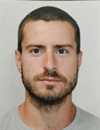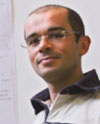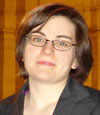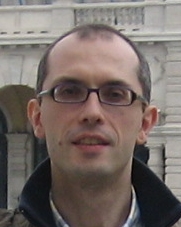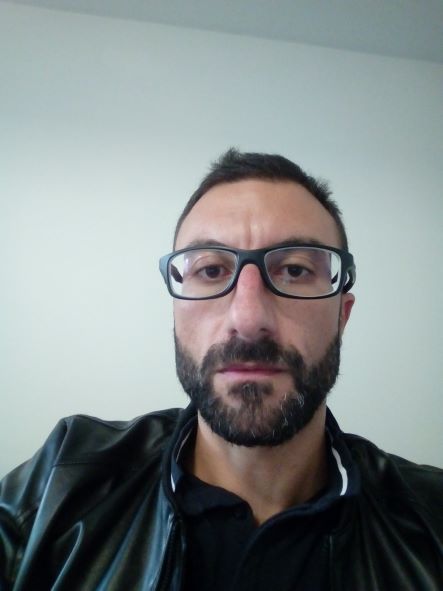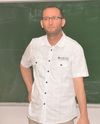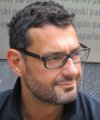Studying at the University of Verona
Here you can find information on the organisational aspects of the Programme, lecture timetables, learning activities and useful contact details for your time at the University, from enrolment to graduation.
Academic calendar
The academic calendar shows the deadlines and scheduled events that are relevant to students, teaching and technical-administrative staff of the University. Public holidays and University closures are also indicated. The academic year normally begins on 1 October each year and ends on 30 September of the following year.
Course calendar
The Academic Calendar sets out the degree programme lecture and exam timetables, as well as the relevant university closure dates..
| Period | From | To |
|---|---|---|
| Primo semestre | Oct 4, 2021 | Jan 28, 2022 |
| Secondo semestre | Mar 7, 2022 | Jun 10, 2022 |
| Session | From | To |
|---|---|---|
| Sessione invernale d'esame | Jan 31, 2022 | Mar 4, 2022 |
| Sessione estiva d'esame | Jun 13, 2022 | Jul 29, 2022 |
| Sessione autunnale d'esame | Sep 1, 2022 | Sep 30, 2022 |
| Period | From | To |
|---|---|---|
| Festa di Tutti i Santi | Nov 1, 2021 | Nov 1, 2021 |
| Festa dell'Immacolata Concezione | Dec 8, 2021 | Dec 8, 2021 |
| Festività natalizie | Dec 24, 2021 | Jan 2, 2022 |
| Festa dell'Epifania | Jan 6, 2022 | Jan 7, 2022 |
| Festività pasquali | Apr 15, 2022 | Apr 19, 2022 |
| Festa della Liberazione | Apr 25, 2022 | Apr 25, 2022 |
| Festa di San Zeno - S. Patrono di Verona | May 21, 2022 | May 21, 2022 |
| Festa della Repubblica | Jun 2, 2022 | Jun 2, 2022 |
| Chiusura estiva | Aug 15, 2022 | Aug 20, 2022 |
Exam calendar
Exam dates and rounds are managed by the relevant Science and Engineering Teaching and Student Services Unit.
To view all the exam sessions available, please use the Exam dashboard on ESSE3.
If you forgot your login details or have problems logging in, please contact the relevant IT HelpDesk, or check the login details recovery web page.
Should you have any doubts or questions, please check the Enrollment FAQs
Academic staff
 elena.antelmi@univr.it
elena.antelmi@univr.it
 anna.barbieri@univr.it
anna.barbieri@univr.it
 mauro.bonafini@univr.it
mauro.bonafini@univr.it
 maurizio.boscaini@univr.it
maurizio.boscaini@univr.it
 mila.dallapreda@univr.it
mila.dallapreda@univr.it
 michele.ginesi@univr.it
michele.ginesi@univr.it
 giovannigerardo.muscolo@univr.it
giovannigerardo.muscolo@univr.it
 giandomenico.nollo@unitn.it
giandomenico.nollo@unitn.it
 andrea.roberti@univr.it
andrea.roberti@univr.it
 luca.selmi@unimore.it
luca.selmi@unimore.it
 claudio.tomazzoli@univr.it
claudio.tomazzoli@univr.it
 federico.tramarin@univr.it
federico.tramarin@univr.it
 ihsen.yengui@univr.it
ihsen.yengui@univr.it
 franco.zivcovich@univr.it
franco.zivcovich@univr.it
 simone.zuccher@univr.it
simone.zuccher@univr.it
Study Plan
The Study Plan includes all modules, teaching and learning activities that each student will need to undertake during their time at the University.
Please select your Study Plan based on your enrollment year.
1° Year
| Modules | Credits | TAF | SSD |
|---|
2° Year activated in the A.Y. 2022/2023
| Modules | Credits | TAF | SSD |
|---|
3° Year activated in the A.Y. 2023/2024
| Modules | Credits | TAF | SSD |
|---|
1 MODULE TO BE CHOSEN BETWEEN THE FOLLOWING| Modules | Credits | TAF | SSD |
|---|
| Modules | Credits | TAF | SSD |
|---|
| Modules | Credits | TAF | SSD |
|---|
1 MODULE TO BE CHOSEN BETWEEN THE FOLLOWING| Modules | Credits | TAF | SSD |
|---|
Altre attività formative: lo studente può scegliere tra le 2 seguenti opzioni: a) 2 CFU di seminari al 2 anno e 7 CFU di tirocinio al 3 anno oppure b) 9 CFU di tirocinio al 3 anno.Legend | Type of training activity (TTA)
TAF (Type of Educational Activity) All courses and activities are classified into different types of educational activities, indicated by a letter.
Operating systems (2023/2024)
Teaching code
4S009887
Credits
6
Language
Italian
Scientific Disciplinary Sector (SSD)
ING-INF/05 - INFORMATION PROCESSING SYSTEMS
Courses Single
Authorized
The teaching is organized as follows:
Teoria
Laboratorio
Learning objectives
The course aims to introduce the principles of operating systems, regarding the software architecture of an operating system, the management and synchronization of processes and the management of the computing system resources. At the end of the course, students must demonstrate that they have:
- Knowledge and understanding related to the internal organization, functioning and services of an operating system. In particular, they will have understood: the main functions of an operating system in relation to users and application programs, the strategies used by the operating system to manage the resources of a computer, and the techniques used to implement the components of an operating system.
- Ability to apply the acquired knowledge to: develop applications with awareness of how the operating system manages processes, develop applications that use the primitives made available by the operating system, and develop and modify components of an operating system.
- Ability to autonomously evaluate the advantages and disadvantages of different design choices in the context of the services offered by an operating system.
- Ability to carry out a group laboratory project and to present the relative results, motivating the choices with appropriate language.
- Ability to develop the skills necessary to continue studying operating systems, addressing advanced issues related to distributed, real-time and embedded systems.
Prerequisites and basic notions
In order to better learn the topics covered in the course it is necessary to have acquired knowledge and skills related to:
- Computer architecture
- C programming
Program
Theory
---------
* Introduction: Structure and functions of an operating system.
* Process Management: in memory image and state of a process. Context switch. Process operations. Cooperation and communication between processes.
* Scheduling: Long, medium and short term scheduling. CPU scheduling with and without preemption.
* Synchronization between processes: Data consistency. Critical sections. Synchronization schemes and constructs.
* Deadlock: Conditions for triggering a deadlock. Prevention, detection and recovery techniques.
* Main memory management: Logical and physical addressing, and address binding. Memory allocation techniques. Virtual memory management.
* Secondary storage management: Storage devices. File system.
Lab:
------------
* System call for process and thread management
* System call for interprocess communication
* System calls for process synchronization
* System calls for shared memory
Bibliography
Didactic methods
The theory will be organized in lectures, exercises and self-assessment activities. The laboratory will be structured in practical exercises on the computer.
Learning assessment procedures
The exam consists of two tests, one in theory and one in the laboratory
Theory
---------
The exam of the theory part consists of a written test, containing multiple choice questions, open-ended questions and exercises.
Lab
-----------------
The examination of the laboratory part consists in developing and delivering a laboratory project according to the specifications provided by the teacher. The project will then be discussed in an oral exam.
Evaluation criteria
To pass the exam, the student must show
- they have understood the principles related to how an operating system works
- they are able to describe the concepts in a clear and exhaustive way without digressions
- they are able to apply the acquired knowledge to solve application scenarios described by means of exercises, questions and projects.
Criteria for the composition of the final grade
The final grade is obtained from the following formula: grade_theory*0.5 + grade_laboratory*0.5.
Exam language
Italiano
Sustainable Development Goals - SDGs
This initiative contributes to the achievement of the Sustainable Development Goals of the UN Agenda 2030. More information on sustainability
Type D and Type F activities
Le attività formative di tipologia D sono a scelta dello studente, quelle di tipologia F sono ulteriori conoscenze utili all’inserimento nel mondo del lavoro (tirocini, competenze trasversali, project works, ecc.). In base al Regolamento Didattico del Corso, alcune attività possono essere scelte e inserite autonomamente a libretto, altre devono essere approvate da apposita commissione per verificarne la coerenza con il piano di studio. Le attività formative di tipologia D o F possono essere ricoperte dalle seguenti attività.
1. Insegnamenti impartiti presso l'Università di Verona
Comprendono gli insegnamenti sotto riportati e/o nel Catalogo degli insegnamenti (che può essere filtrato anche per lingua di erogazione tramite la Ricerca avanzata).
Modalità di inserimento a libretto: se l'insegnamento è compreso tra quelli sottoelencati, lo studente può inserirlo autonomamente durante il periodo in cui il piano di studi è aperto; in caso contrario, lo studente deve fare richiesta alla Segreteria, inviando a carriere.scienze@ateneo.univr.it il modulo nel periodo indicato.
2. Attestato o equipollenza linguistica CLA
Oltre a quelle richieste dal piano di studi, per gli immatricolati A.A. 2021/2022 e A.A. 2022/2023 vengono riconosciute:
- Lingua inglese: vengono riconosciuti 3 CFU per ogni livello di competenza superiore a quello richiesto dal corso di studio (se non già riconosciuto nel ciclo di studi precedente).
- Altre lingue e italiano per stranieri: vengono riconosciuti 3 CFU per ogni livello di competenza a partire da A2 (se non già riconosciuto nel ciclo di studi precedente).
Tali cfu saranno riconosciuti, fino ad un massimo di 3 cfu complessivi, di tipologia D. Solo nel caso in cui la data di acquisizione della certificazione sia precedente al 27/10/2023 (data della delibera del Collegio didattico di Ingegneria dell'Informazione) potranno essere riconosciuti un massimo di 6 CFU, come precedentemente previsto. Ulteriori crediti a scelta per conoscenze linguistiche potranno essere riconosciuti solo se coerenti con il progetto formativo dello studente e se adeguatamente motivati.
Per gli immatricolati A.A. 2023/2024 i crediti per certificazioni linguistiche ulteriori a quelle previste dal piano didattico vengono riconosciuti come crediti sovrannumerari taf D.
Modalità di inserimento a libretto: richiedere l’attestato o l'equipollenza al CLA e inviarlo alla Segreteria Studenti - Carriere per l’inserimento dell’esame in carriera, tramite mail: carriere.scienze@ateneo.univr.it
3. Competenze trasversali
Scopri i percorsi formativi promossi dal TALC - Teaching and learning center dell'Ateneo, destinati agli studenti regolarmente iscritti all'anno accademico di erogazione del corso https://talc.univr.it/it/competenze-trasversali
Modalità di inserimento a libretto: non è previsto l'inserimento dell'insegnamento nel piano di studi. Solo in seguito all'ottenimento dell'Open Badge verranno automaticamente convalidati i CFU a libretto. La registrazione dei CFU in carriera non è istantanea, ma ci saranno da attendere dei tempi tecnici.
4. Periodo di stage/tirocinio
Oltre ai CFU previsti dal piano di studi (verificare attentamente quanto indicato sul Regolamento Didattico): qui il VADEMECUM DELLE ATTIVITÀ DI TIROCINIO (indirizzo email della Commissione tirocini: tirocini-ismp@ateneo.univr.it ); qui la relativa pagina informativa (con link a moodle); qui informazioni su come attivarlo.
Insegnamenti e altre attività che si possono inserire autonomamente a libretto
| years | Modules | TAF | Teacher |
|---|---|---|---|
| 1° | Subject requirements: mathematics | D |
Franco Zivcovich
|
Career prospects
Module/Programme news
News for students
There you will find information, resources and services useful during your time at the University (Student’s exam record, your study plan on ESSE3, Distance Learning courses, university email account, office forms, administrative procedures, etc.). You can log into MyUnivr with your GIA login details: only in this way will you be able to receive notification of all the notices from your teachers and your secretariat via email and soon also via the Univr app.
Attendance
The inter-university nature of the course of study lies in the cooperation of the three universities in the provision of faculty. Therefore, teaching delivery takes place at the administrative and teaching site in Verona and not in the partner universities. This means that it is not possible to attend this bachelor's degree program in the University of Trento or Modena-Reggio Emilia; however, it is possible to use the study spaces of the partner universities, thanks to the agreement between them.
As stated in the Didactic Regulations for A.Y. 2022/2023, course attendance is not mandatory.
Career management
Student login and resources
Erasmus+ and other experiences abroad
Graduation
List of theses and work experience proposals
| theses proposals | Research area |
|---|---|
| THESIS_1: Sensors and Actuators for Applications in Micro-Robotics and Robotic Surgery | Various topics |
| THESIS_2: Force Feedback and Haptics in the Da Vinci Robot: study, analysis, and future perspectives | Various topics |
| THESIS_3: Cable-Driven Systems in the Da Vinci Robotic Tools: study, analysis and optimization | Various topics |

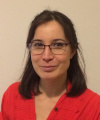

 0461 283551
0461 283551

